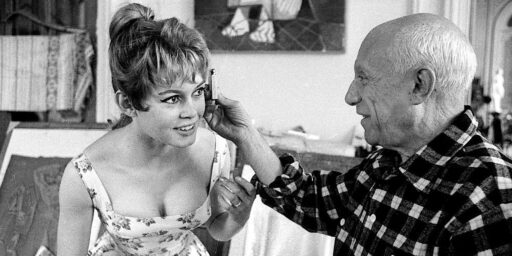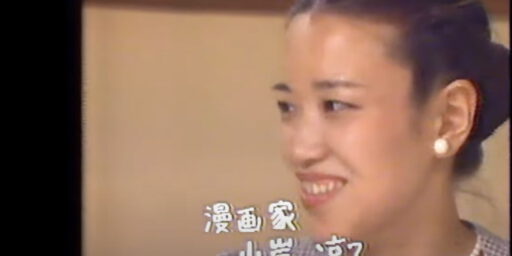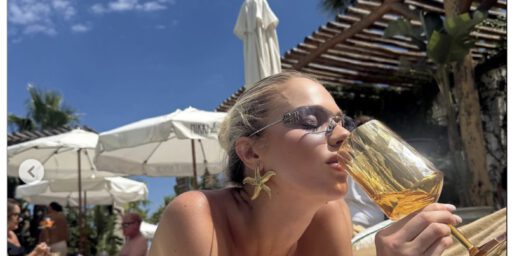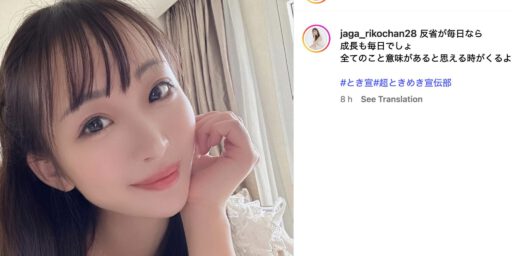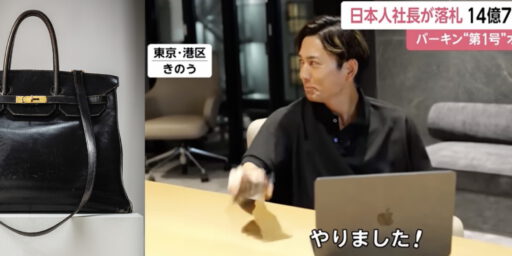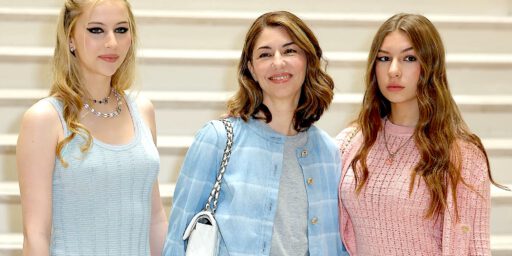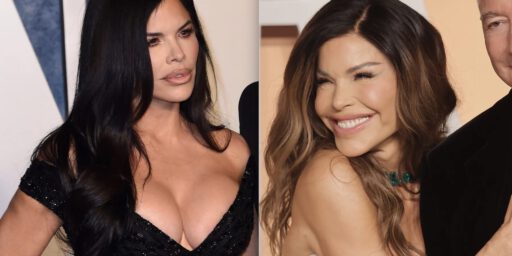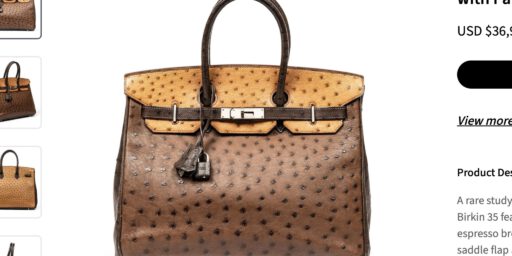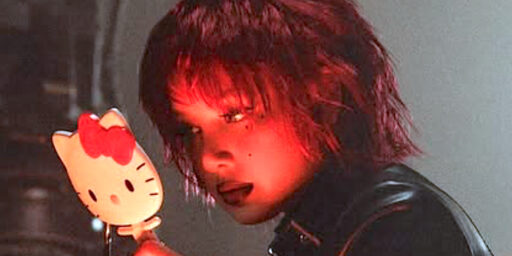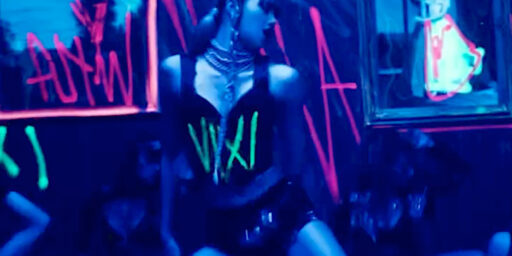インスタグラム・ビューティー・フィルター・エロティシズム (IBFE) : 日本の女性の自己欺瞞 Instagram Beauty Filter Eroticism (IBFE) : Self-deception by Japanese Women
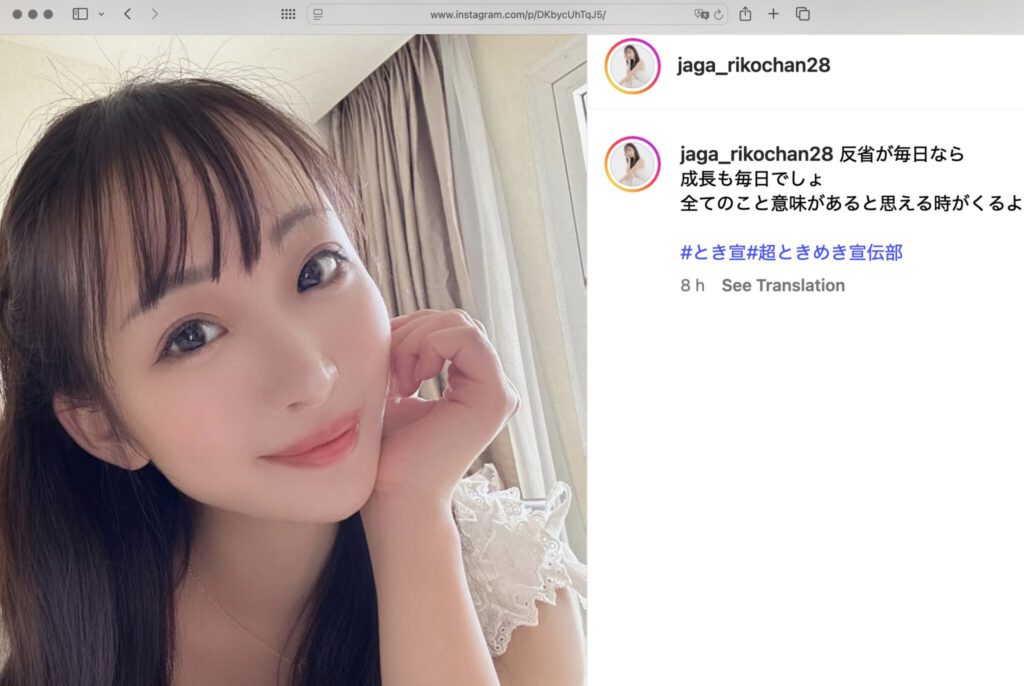
Instagram Beauty Filter Eroticism (IBFE)
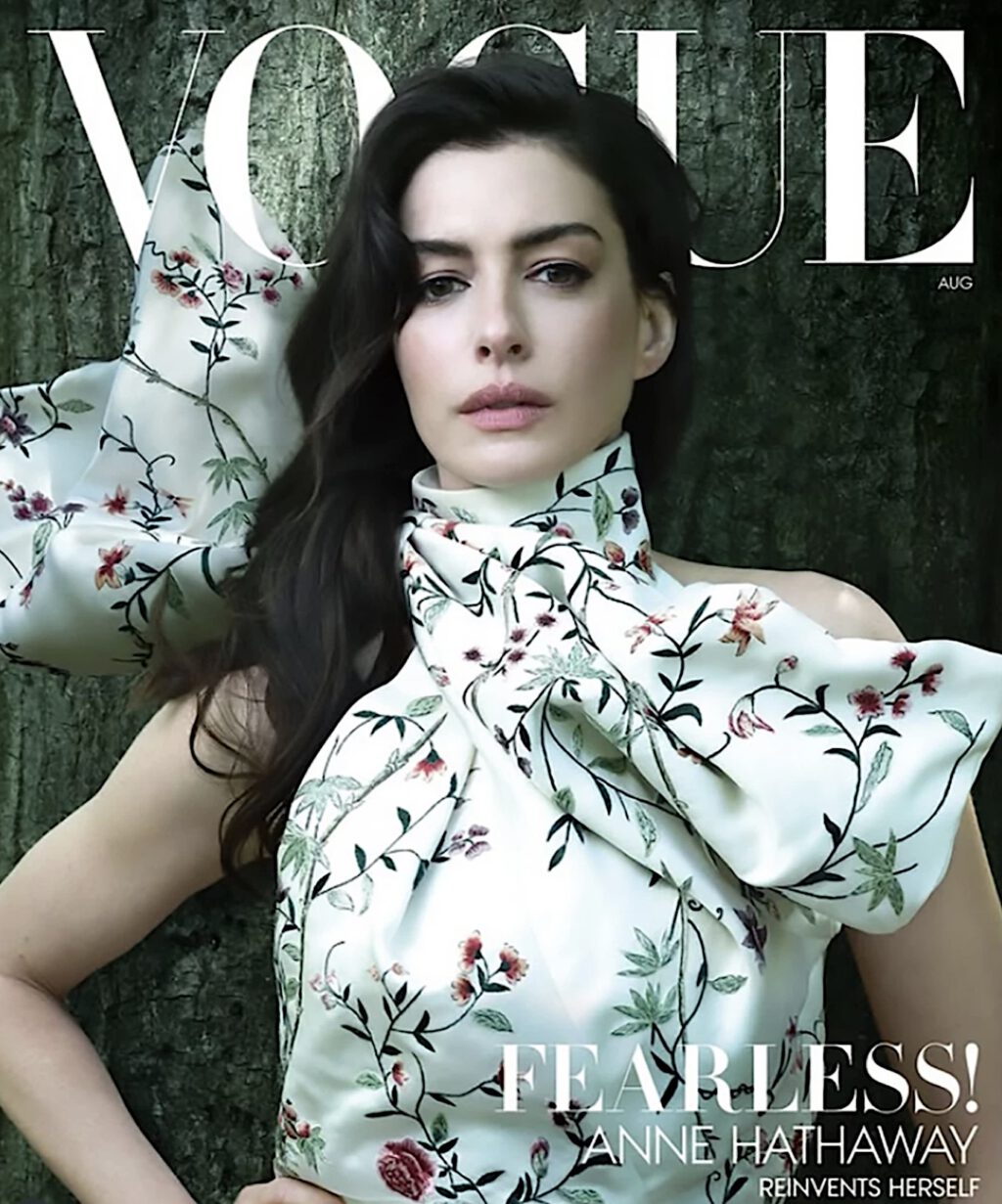
Anne Hathaway on the actual cover of Vogue, photographed by Annie Leibovitz.
A few pages further on, “Vogue” opens a new chapter. There, the fashion brand “Guess” advertises itself: The same model appears twice in opposite pictures, a young blonde beauty with softly waved long hair, which is currently the visual gold standard in America. Smiling, she shows her pearly white teeth and evenly tanned, well-shaped legs as she spreads holiday cheer while sitting at a small table outdoors in a light blue floral-patterned jumpsuit. In contrast, she appears cool in a skin-tight black and white knit dress that emphasises her slim hourglass figure. Her décolleté seems to have had a little too much sun.
アン・ハサウェイが「Vogue ヴォーグ」の表紙を飾る、アンニ・リーボヴィッツ撮影。
数ページ先で、「ヴォーグ」は新たな章を開く。そこではファッションブランド「Guess ゲス」が広告を掲載:同じモデルが対照的な写真に二度登場し、柔らかくウェーブのかかった長い金髪を持つ若き美女は、現在アメリカで視覚的な基準となっている。笑顔で真珠のような白い歯を見せ、均一に日焼けした美しい脚を露わにしながら、屋外にある小さなテーブルで休暇の喜びを伝える彼女は、ライトブルーの花柄ジャンプスーツを着用しています。一方、黒と白のタイトなニットドレスを着用した彼女は、スリムな砂時計型のボディラインを強調し、クールな印象を与えています。彼女のデコルテは、少し日焼けしすぎているように見えます。
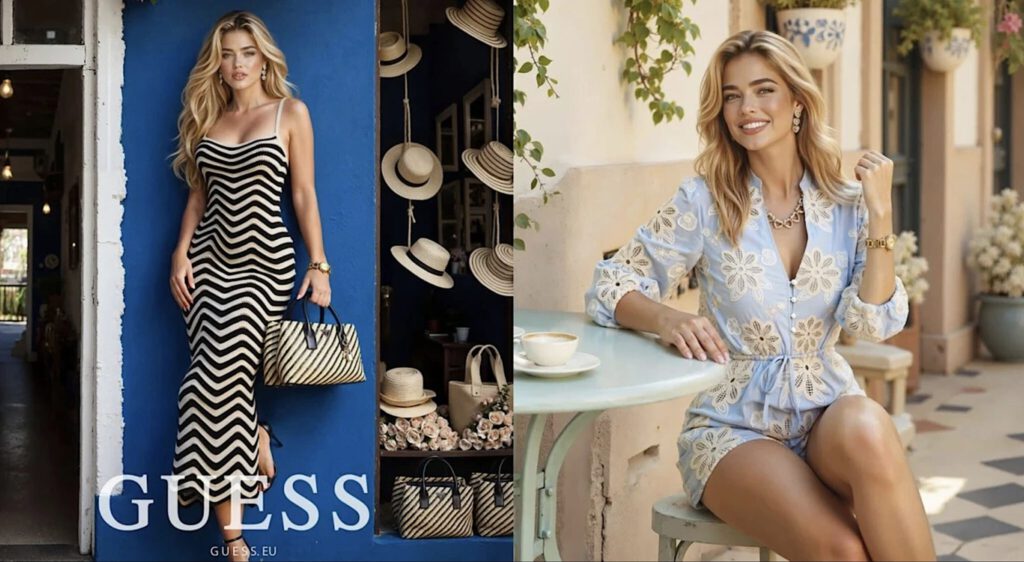
But appearances are deceptive. The model in the “Guess” advertising campaign neither sunbathed, nor sat anywhere, nor wore anything; she had no makeup, was not brought to a set, and never listened to instructions from a photographer. It is pure visual fiction, generated with the help of artificial intelligence (AI) by the agency Seraphinne Vallora.
As she explained to “Buzz Feed,” the agency’s co-founder, Andreea Petrescu, originally only wanted to use AI to showcase her own jewelry brand – and discovered a business model for advertising photos and videos of the future. This has now brought the first AI model to the prestigious “Vogue,” and into the venerable glossy print edition at that. It’s fitting that Condé Nast, the fashion magazine’s publisher, already signed an agreement with OpenAI last year to allow its AI to work with “Vogue” content.
しかし、見た目は欺瞞的です。 「Guess」の広告キャンペーンに登場するモデルは、日焼けもせず、どこにも座らず、何も着ていませんでした。彼女はメイクもせず、撮影現場に連れて行かれず、写真家の指示も受けませんでした。これは、広告代理店Seraphinne Valloraが人工知能(AI)の助けを借りて生成した純粋な視覚的フィクションです。
「Buzz Feed」への説明で、同エージェンシーの共同創設者であるアンドレア・ペトレスクは、当初はAIを自身のジュエリーブランドをアピールするためにのみ使用しようと考えていたが、未来の広告写真や動画のビジネスモデルを発見したと述べています。これにより、AIモデルが初めて「Vogue」の著名な誌面に登場し、伝統ある光沢のある印刷版にも掲載されることになりました。ファッション誌の出版社であるコンデ・ナストは、昨年すでにOpenAIと提携し、そのAIが「ヴォーグ」のコンテンツと協力できるようにする契約を締結していたため、この展開は適切と言えるでしょう。
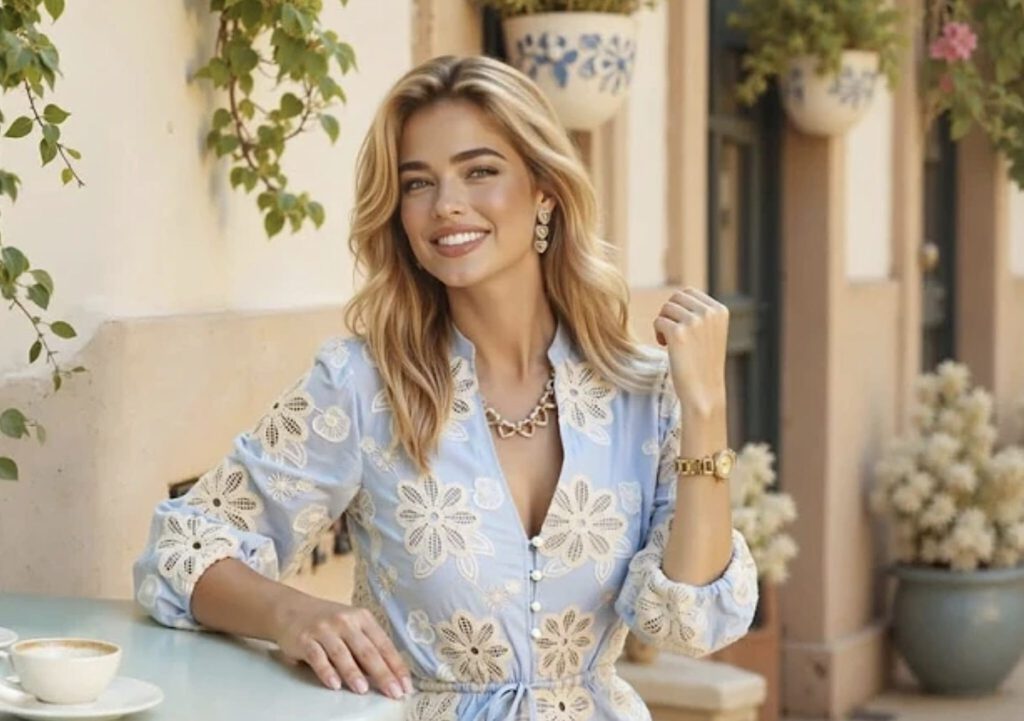
Unattainable Standards from the Virtual World
As expected, the initial reactions to the magazine’s AI model, especially on social media, were met with widespread outrage. This is no surprise, given that the computer-generated image of women contradicts years of efforts in the beauty industry to embrace more diversity and imperfection. “Guess”‘s AI model appears to represent the algorithmic average of the “All American Girl,” in keeping with the gender stereotypical rollback during the second Trump administration. One could argue, however, that AI diversity is also just a matter of programming or the right prompting.
バーチャル世界から生まれた達成不可能な基準
予想通り、雑誌のAIモデルに対する最初の反応、特にソーシャルメディアでの反応は、広範な非難を浴びた。これは驚くべきことではない。なぜなら、コンピュータ生成された女性の画像は、美容業界が長年取り組んできた多様性と不完全性の受け入れという努力と矛盾しているからだ。「Guess」のAIモデルは、第2次トランプ政権下での性別ステレオタイプの後退に沿った「オール・アメリカン・ガール」のアルゴリズム的平均を表現しているように見えます。しかし、AIの多様性は、単にプログラミングや適切なプロンプトの問題に過ぎないとも主張できるでしょう。
Either way, however, the deceptively realistic-looking advertising figure, as a model for stimulating desire, exerts normative pressure in a new way. The difference between this and the familiar images of naturally blessed, plastically and aesthetically optimised people, visually enhanced using image editing programmes, is that no human being is at the centre of the illusion anymore. The illusion becomes self-referential – and the inbreeding of one’s own body with diets or weight-loss injections, Botox or facelifts for the sake of appearance, as dictated by pop culture figureheads, suddenly appears to be a downright touching and helpless endeavour. All these efforts are no match for AI, which does not groan under the burden of biology.
いずれにせよ、この欺瞞的なほど現実的な広告のモデルは、欲望を刺激するモデルとして、新たな形で規範的な圧力を及ぼす。このモデルと、自然に恵まれた、プラスチックや美学的に最適化された人々を、画像編集プログラムで視覚的に強化した馴染みのあるイメージとの違いは、もはや人間の存在が幻想の中心にいない点にある。その幻想は自己言及的となり、ポップカルチャーのアイコンが求める外見のために、ダイエットや減量注射、ボトックスやフェイスリフトで自身の身体を改造する行為は、突然、切なくも無力な努力のように見えてきます。これらの努力は、生物学の重荷に苦悩しないAIには及ばないのです。
Will we all want to look like machine images in the future? Or will they be modelled after us? There will probably be interactions. But AI models will certainly set out to destroy jobs and change the advertising industry with a cold smile: Why have expensive photo shoots with lots of staff for catalogue goods when clever prompts can do the job to the customer’s satisfaction? The agency behind the “Guess” model defends itself on Instagram against accusations of technological coldness, insisting that although the campaign images are AI-generated, a team of human creatives was still involved in their creation: designers, photographers, stylists – and even models.
未来、私たちは皆、機械のイメージのように見たいと思うのでしょうか?それとも、彼らが私たちをモデルに作るのでしょうか?おそらく相互作用があるでしょう。しかし、AIモデルは冷たい笑みを浮かべながら、確実に雇用を破壊し、広告業界を変革するでしょう:カタログ商品のために多くのスタッフを動員した高額な写真撮影を行う必要がなぜあるのでしょうか?顧客の満足度を満たすために、賢いプロンプトが同じ役割を果たすことができるからです。「Guess」モデルの背後にいるエージェンシーは、Instagramで技術的な冷たさへの批判に対して反論し、キャンペーン画像はAI生成であるものの、その作成には人間のクリエイターチームが関与していたと主張しています:デザイナー、フォトグラファー、スタイリスト——そしてモデルさえも。
Instagram Beauty Filter Eroticism (IBFE)
インスタグラム・ビューティー・フィルター・エロティシズム(IBFE)
Recent developments by Japanese women influencers have deeply concerned me with how Japanese women deal with beauty filters. As a nearly 70-year-old feminist, my position is clearly defined. In the spirit of Sartre’s “The Idiot of the Family”: “If the world is hell, we are damned from birth.”
And since, as it has been said elsewhere, hell is other people, damnation consists in being damned with them – collectively. Damned = condemned and lost for happiness.
日本の女性インフルエンサーたちの最近の動向は、日本女性がビューティーフィルターとどう向き合っているかについて、私を深く懸念させている。70歳近いフェミニストとして、私の立場は明確だ。サルトルの『家族の愚か者』の精神に則り、「世界が地獄なら、私たちは生まれながらに呪われている」と。
そして、他所で言われているように、地獄は他者であるなら、呪いは彼らと共に呪われること——集団的に——です。呪われた=幸福から断絶され、失われた状態です。
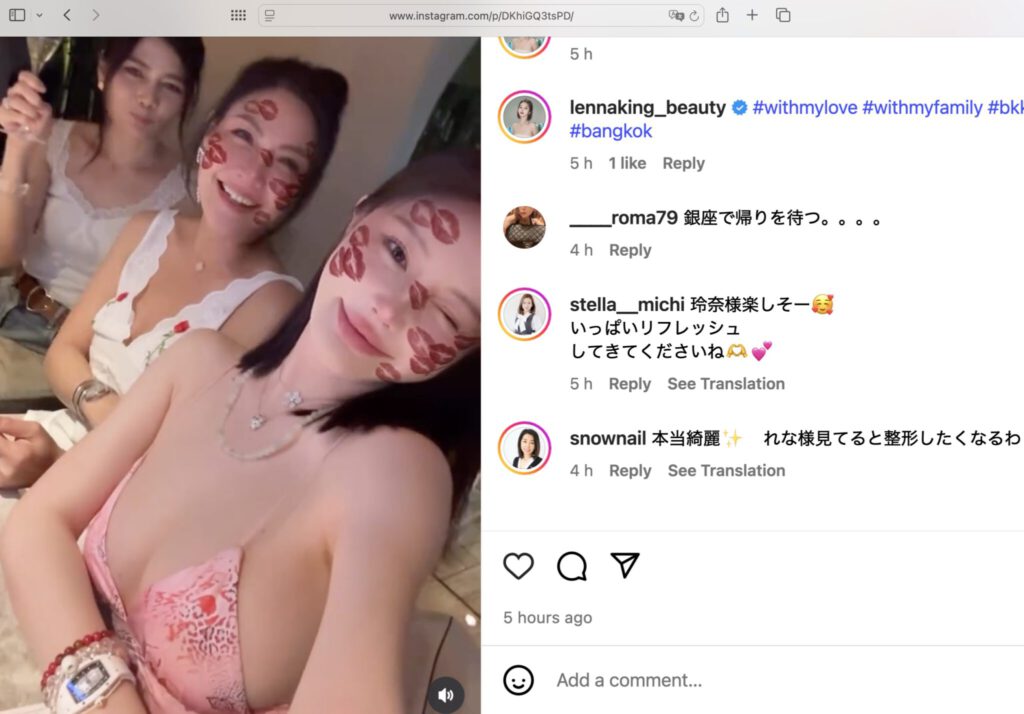
https://www.instagram.com/p/DKhiGQ3tsPD/
Whether the freedom of the individual (here: the Japanese woman) was objectively unfree can only be determined after death. What is certain is that in this objective unfreedom, the woman attempts to shape her future with the help of beauty filters and augmented reality devices. Here we ask ourselves: doesn’t the woman realise that the beauty filter proclaims and promises a dangerous beauty?
個人の自由(ここでは日本の女性)が客観的に不自由であったかどうかは、死後でなければ判断できない。確実なのは、この客観的な不自由さの中で、女性が美顔フィルターと拡張現実デバイスを利用して未来を形作ろうとしている点だ。ここで私たちは問う:女性は、美顔フィルターが危険な美しさを宣言し、約束していることに気づいていないのだろうか?
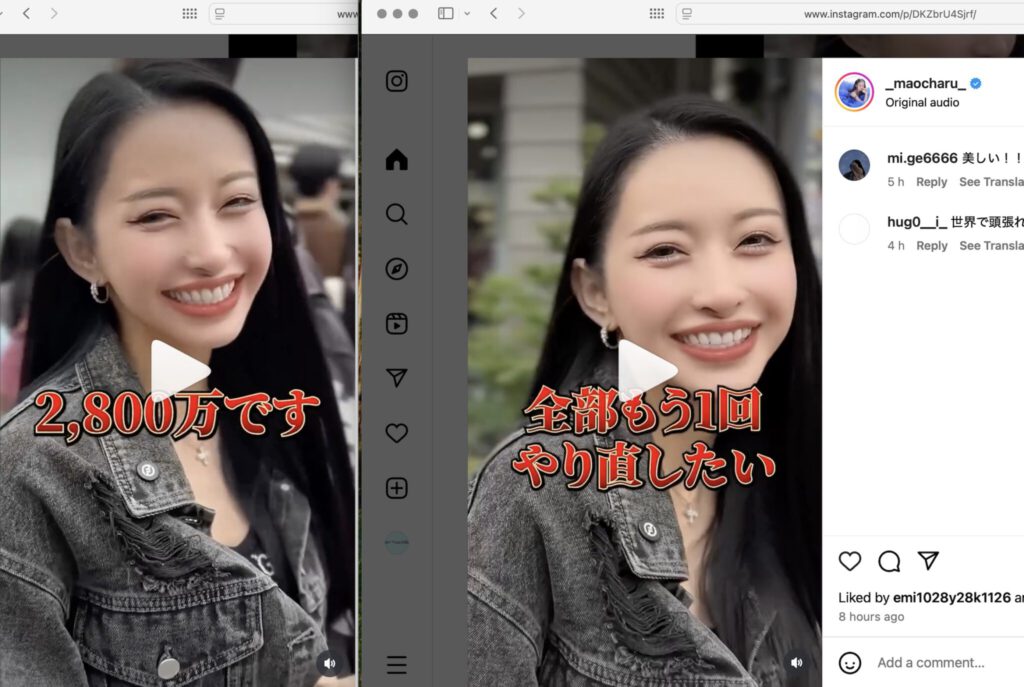
https://www.instagram.com/p/DKZbrU4Sjrf/
At the touch of a button, but with the soft focus often comes self-doubt, right?
A friendship, regardless of gender context, becomes a farce. A self-deception and self-destruction.
ボタンを押すだけで、でも焦点がぼやけていると、往々にして自信を失う。そうでしょう?
ジェンダーに関係なく、友情は茶番劇と化す。自己欺瞞と自己破壊だ。
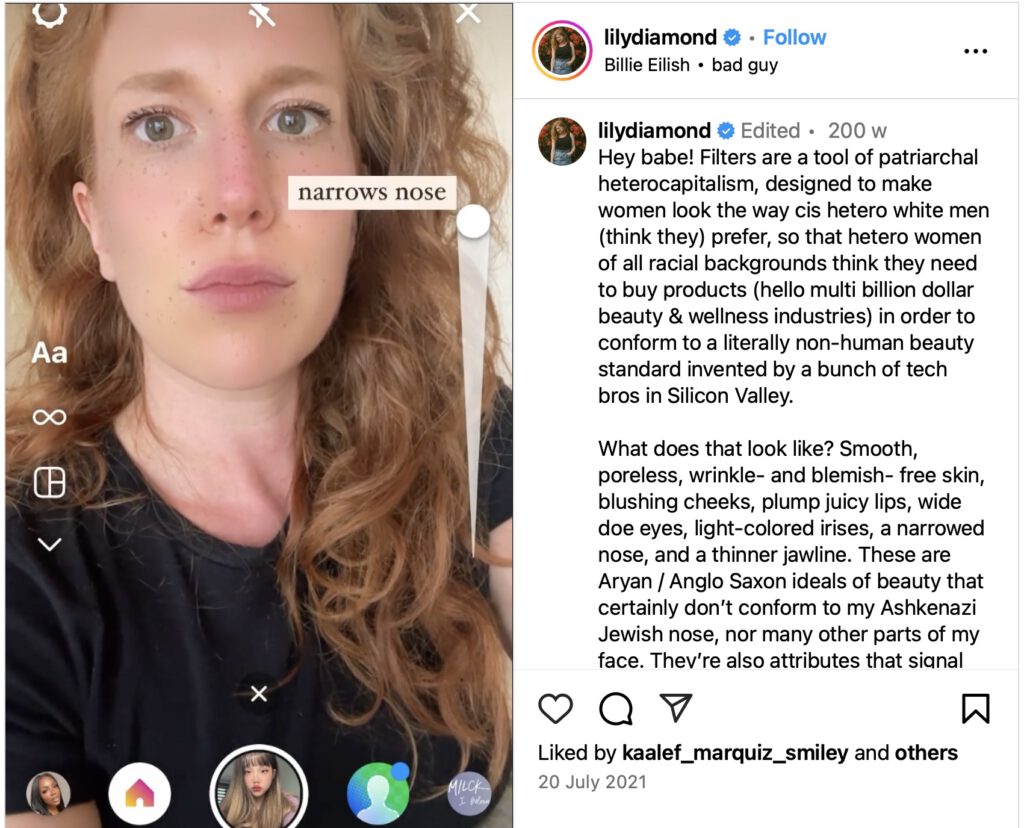
https://www.instagram.com/reel/CRiG8DUjkNU/
Big eyes, full lips, narrow face.
Beauty plays a big role in augmented reality filters. But beauty does not automatically mean makeup.
It is a betrayal of women’s universally intended freedom, the undermining of emancipation, human dignity, equality, subsidiarity and “be yourself.”
Many Japanese young women nowadays attempt to create connectivity through ephemeral beauty.
The young audience and mass media producers are turning to the ultra-contemporary to discover tomorrow’s blue-chip stars.
In this intellectual-consumerism balancing act, the branding component takes on an important function, which is exploited by Japanese cosmetics and luxury accessories companies.
大きな目、ふっくらとした唇、細い顔。
拡張現実(AR)フィルターにおいて、美しさは大きな役割を果たしている。しかし、美しさは必ずしも化粧を意味するわけではない。
それは、女性の普遍的な自由への裏切りであり、解放、人間の尊厳、平等、補完性、そして「自分らしくであること」を損なうものだ。
昨今の多くの日本の若い女性は、はかない美を通して繋がりを築こうとしている。
若い視聴者とマスメディア制作者たちは、明日のブルーチップ・スターを発掘するために、超現代的なものに目を向けている。
この知的消費主義と消費主義の綱渡りにおいて、ブランディングという要素が重要な役割を担っており、日本の化粧品や高級アクセサリー企業はそれを巧みに利用している。

https://www.instagram.com/p/DKbycUhTqJ5/
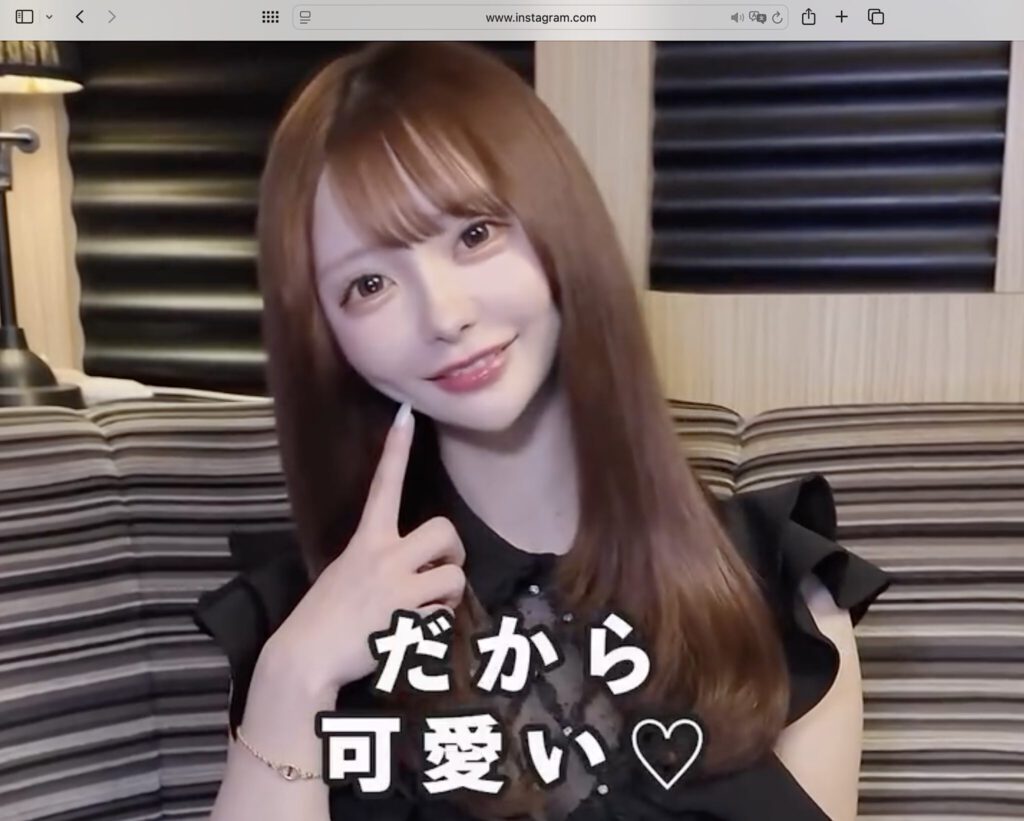
For Japanese female artists, it’s also about proportionality (Verhältnismässigkeit). You can have a career even without makeup, because the works of art speak for themselves, autonomously. If makeup becomes a generic beauty filter, then I, as a fellow artist, have a big problem.
Eroticism is a woman’s weapon. (Like tears.)
For this reason, I coined the term “Instagram Beauty Filter Eroticism” (IBFE).
Another template for the Zeitgeist.
I luv you guys! It’s Friday! Now let’s paaaaarty!
Wishing wonderful summer holidays!
日本の女性アーティストにとって、それは均整性(Verhältnismässigkeit)とも言えます。メイクをしなくてもキャリアを築くことは可能です。なぜなら、作品はそれ自体で、自律的に、自らを語るからです。もしメイクが単なる美のフィルターになってしまうなら、同じアーティストである私にとって大きな問題です。
エロティシズムは女性の武器です。(涙のように。)
だからこそ、私は「インスタグラム・ビューティー・フィルター・エロティシズム(IBFE)/ Instagram Beauty Filter Eroticism」(IBFE)という言葉を創り出しました。
時代精神を表すもう一つのテンプレートです。
みんな大好き!今日は金曜日!さあ、パーティーだ!
素敵な夏休みを!
Luxor (Wollust/Luxuria) – Tokyo 1st of August 2025
ルクソール-東京 2025年8月1日
Mario A 亜 真里男
その関係性:
Low body weight in women: health damage caused by malnutrition “Measures should be taken to treat it as a disease”
女性の低体重 栄養不足での健康被害 “疾患として対策を”
TV-NHK 2025年6月3日
quote:
ダイエット目的で糖尿病治療薬利用 体調不良訴える人も
糖尿病の治療薬をダイエット目的で利用し、体調不良を訴える人が相次いでいることについて、糖尿病の専門医は、「重篤な副作用などを引き起こす場合もある」として本来の目的以外で使用しないよう呼びかけています。
「GLP-1受容体作動薬」などの糖尿病の治療薬は、主な副作用として吐き気や頭痛、めまい、消化器の不調などの症状が挙げられています。
東京 中野区にある糖尿病などが専門のクリニックでは、この薬を保険適用外では処方していませんが、最近は自由診療のクリニックでオンライン診療などで処方されたこの薬をダイエット目的で使用し、体調不良を訴えて受診する患者が増えているといいます。
クリニックによりますと、受診するのは20代から30代の若い女性が多く、中には低体重の状態にもかかわらず、使用している人もいたということです。
5月に吐き気を訴えて受診した20代の女性は、ダイエット目的でオンライン診療を受け、通常は2.5ミリグラムの投与から始める薬を7.5ミリグラム処方され、使用していたということで、やめるよう伝えたということです。
「中野駅前内科クリニック糖尿病・内分泌内科」の大庭健史院長は「薬の副作用は痩せ型で体重の少ない人のほうが出やすいと考えられる。すい炎など重篤な症状を引き起こす場合もあるので、保険適用外の使用はやめていただきたい」と話しています。
full text:
https://www3.nhk.or.jp/news/html/20250603/k10014824761000.html
